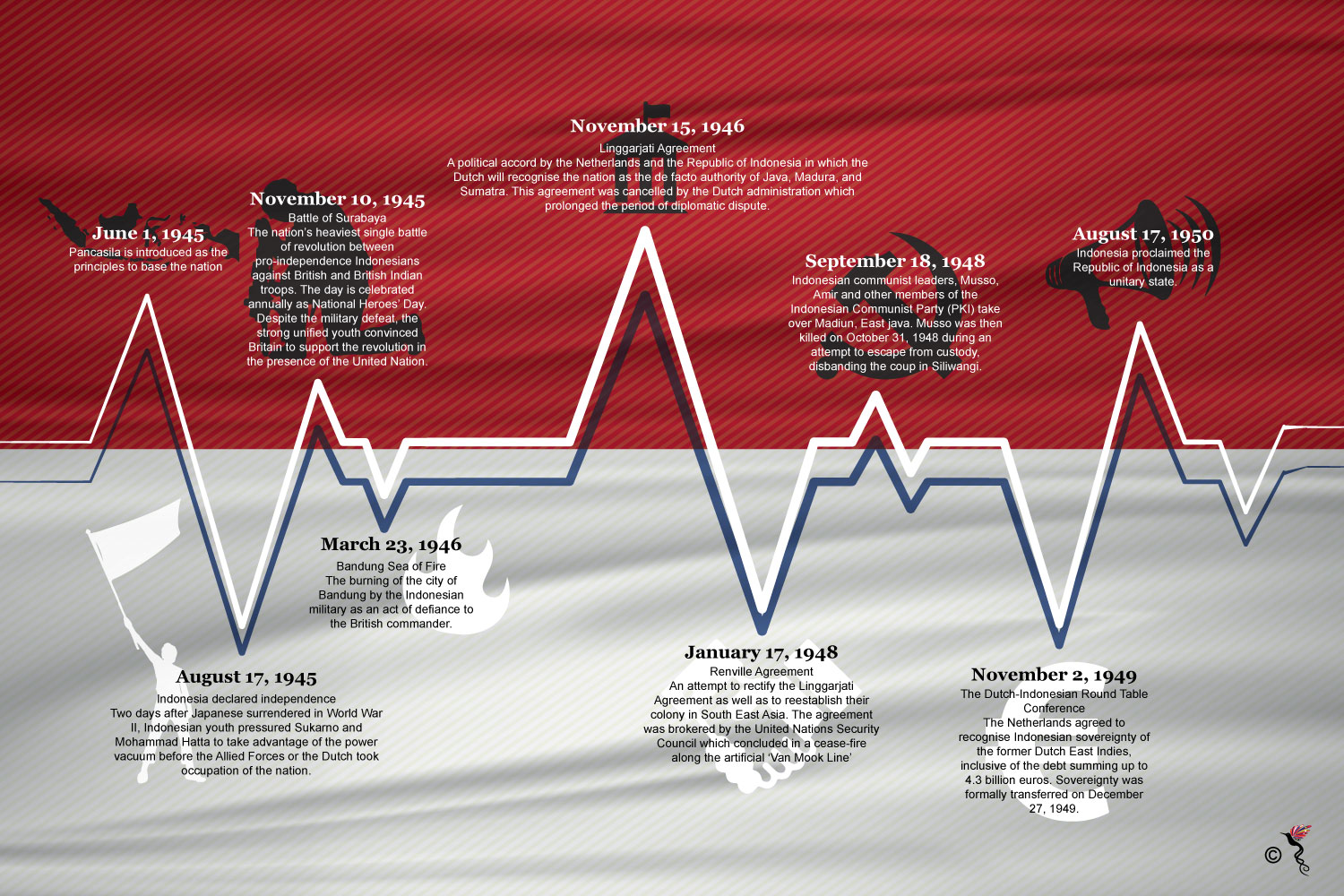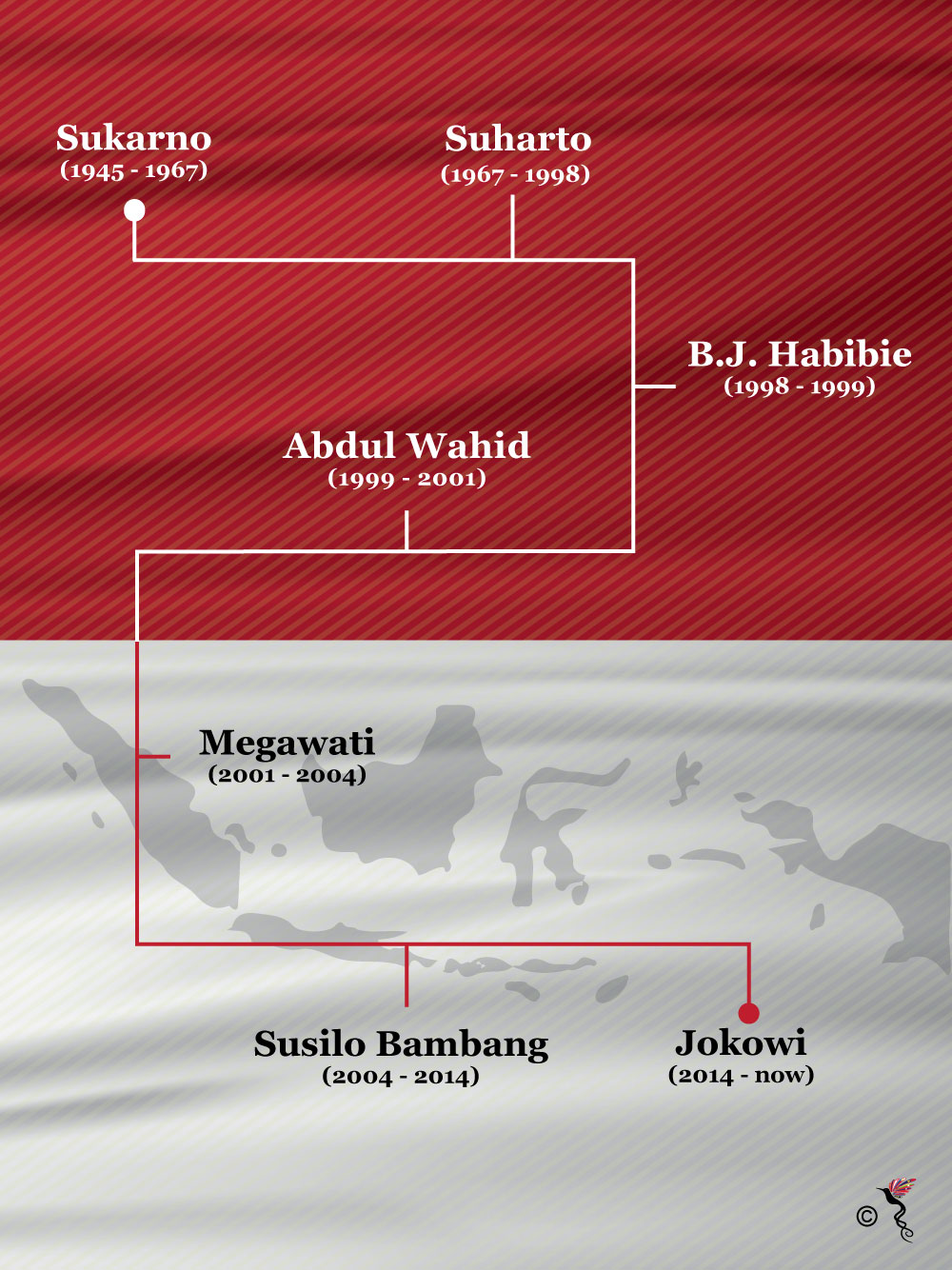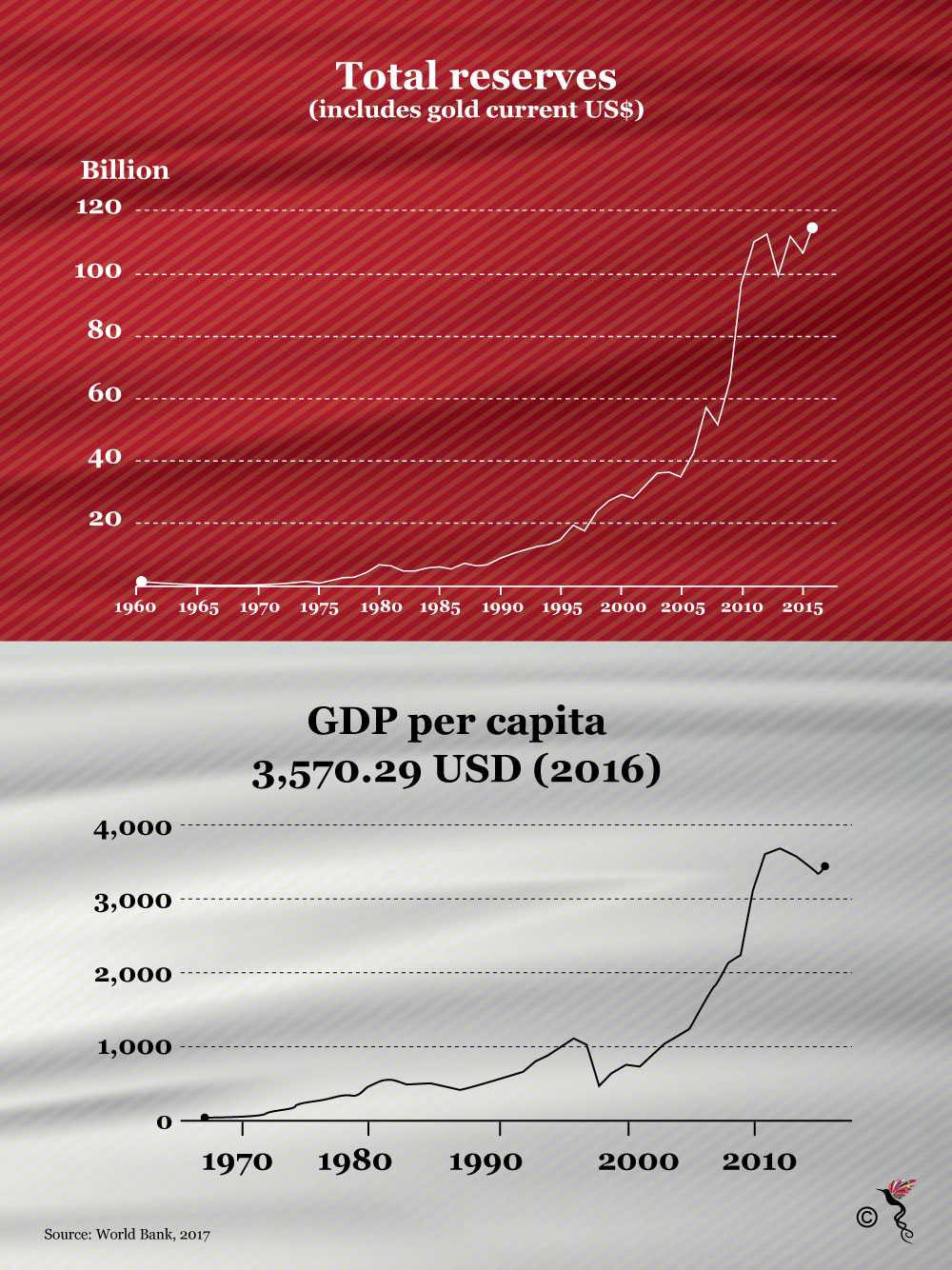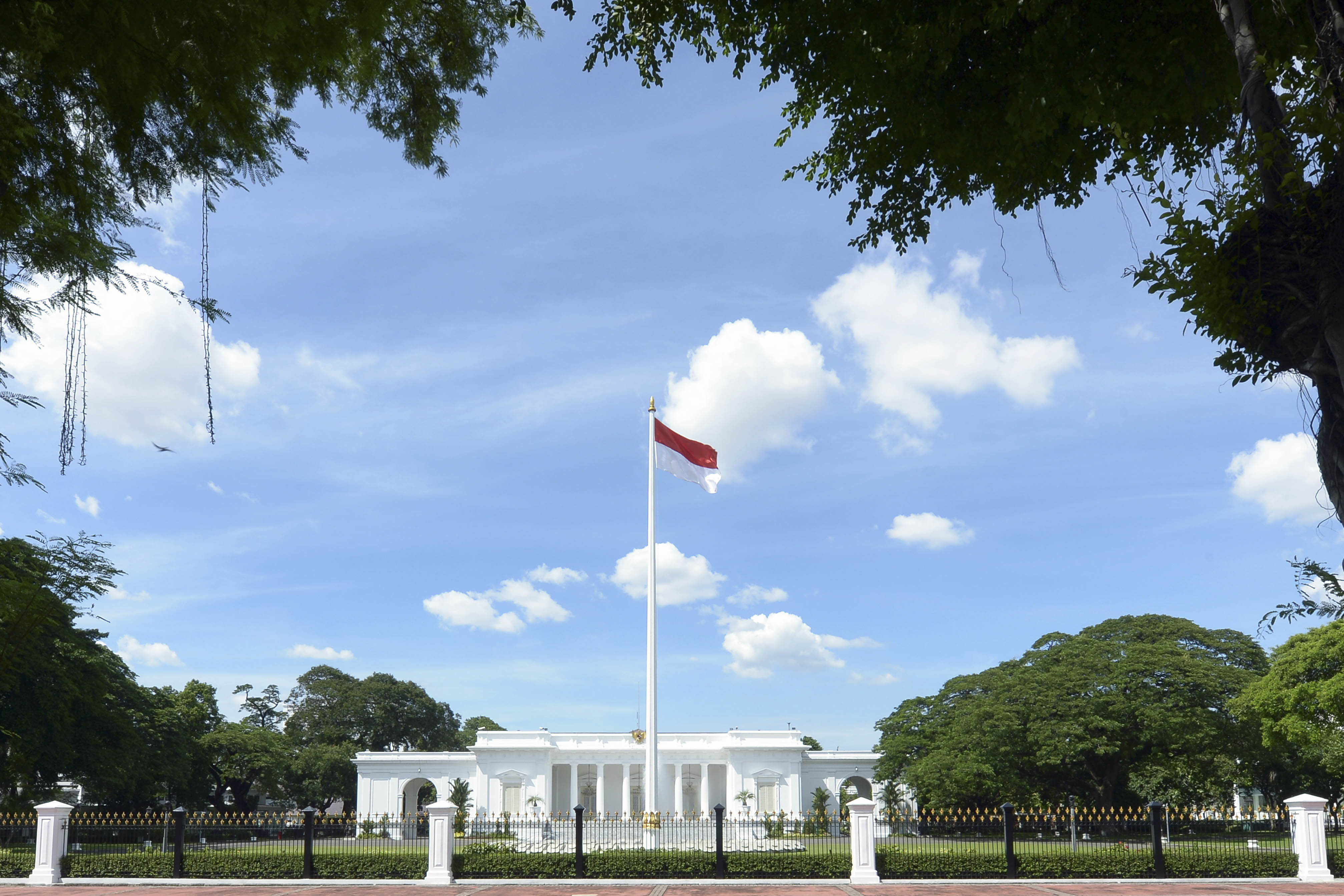Built upon diversity and the struggle for independence, Indonesia turns 72 years old today. The democratic nation's sovereignty covers 1,904,569 square kilometres and holds approximately 260million in population. It is the largest archipelago known and recognised by the United Nations.
Located between two continents, Indonesia is gifted by a diversity in both environment and cultural aspects. It is home to over 300 cultures and over 700 living languages. Indonesia also ranks as the world’s third largest in terms of biodiversity, making it one of the most important trade points since the 7th century. In its' path to achieve independence, Indonesia was plagued by both internal and external factors.

Timeline of Indonesian National Revolution (1945-1950)
Rise and fall of the New Order
By the 20th year of independence, the rule of the first President of the Republic of Indonesia, Sukarno, was deemed autocratic under his “Guided Democracy” that reached its peak in 1965, after seeing the annual inflation at 1000% whilst the public sector subsidies were scrapped and export revenues shrunk along with the fall of the infrastructure systems. It was in this year that all levels of the government were infiltrated by members of the Communist Party of Indonesia (PKI).
On September 30, 1965, a group that called themselves the '30 September Movement' killed six generals within a larger plot of executing the President. The Indonesian army led by General Suharto managed to suppress the coup, in which The Communist Party of Indonesia (PKI) took responsibility and were blamed for the mass killing and purging of nearly half a million citizens, allegedly communists or communist sympathisers.
A presidential decree (Supersemar) was implemented in March 1966, installing Suharto into power and giving him authority over the entire establishment. One of his firsts acts, during the decree, was to strip Sukarno of his Presidency and have him banned from politics for life. Within two years of holding position in the presidential decree, Suharto was appointed as the nation’s second president in March 1968 after Sukarno was impeached by the Indonesia parliament.
In the early years of his reign, Suharto instituted Pancasila as the country’s national ideology, with indoctrination programs that was mandatory to all Indonesian citizens. His government later on continued to exploit the five principles of Pancasila to justify actions and condemn opponents by classifying them as “anti-Pancasila”. A dual function policy was also implemented, allowing the military to have active roles in every level of the nation’s government, economy, and society.
By adopting neutrality with regards to the Cold War in terms of foreign policy, Suharto was able to secure the much needed foreign investment to bolster its nose-diving economy. Regionally, Indonesia became a founding member of the Association of Southeast Asian Nations (ASEAN) on August 8, 1967.
Under the New Order, according to UNDP reports, the socio-economic progress in Indonesia showed hope with poverty rates recovering to 11% in 1996 compared to the 40% in 1970s. The following year saw Indonesia's real GDP grow upwards to 5.03%. Suharto's accomplishments in developing the manufacturing and infrastructure sectors and driving foreign trade earned him honour of being styled the “Father of Development” by the Indonesia parliament. However, what happened next was unimaginable.
The collapse of his regime had begun. Widespread corruption and nepotism fueled public anger and demanded for reformation. Coupled with the Asian Financial Crisis, Indonesia was hit hard by loss of investor confidence and severe capital flight. The graph above illustrates the impacts on the Indonesian economy at the tail end of the New Order.
During a series of demonstrations and riots triggered by the economic meltdown, student demontrators from Trisakti University in Jakarta were killed by armed forces on May 12, 1998 which led to a gathering of university students, demanding Suharto's resignation.
To diffuse the situation, Suharto attempted to issue a decree, similar to the Supersemar Decree, that would have empowered him with the nation's security. The attempt was stopped by military chief Wiranto, who also announced that looters in the riot on the capital's streets would be shot, as reported by AsiaWeek on May 24, 1998. Due to immense pressure, Suharto addressed his resignation on May 21, 1998.
The ASEAN Post talked to Farida Syamsi Chadaria, a former member of the People's Representative Council (DPR), who also served as a former member of the Constitutional Commission of the Republic of Indonesia. Farida Syamsi stated that in the aftermath of the Suharto's resignation and the appointment of B.J. Habibie, the MPR made accelerated efforts to fast track the Indonesia elections with the hope of ensuring social, economical and political stability.

List of the presidents of The Republic of Indonesia
Disasters, recovery and the spirit of Pancasila
Indonesia since its' independence has been able to withstand various disasters, albeit man-made or natural from the core of the Earth. Amongst others, the following are some of the most devastating incidents that happened to the multicultural nation:
-
October 12, 2002, one of the first major terrorist acts hit one of the nation's favourite tourism spots, Bali, where Islamic militants bombed the heart of Kuta. Tourism and economic sectors were impacted as the nation's citizens bowed their head down in memorial for the fallen.
-
December 26, 2004, was the day Indonesian Aceh province was hit by the 9.1 magnitude Indian Ocean earthquake and tsunami. Waves as high as 30 meters crushed the west coast of Aceh. Indonesia was not the only one affected. Among others were Thailand, Malaysia, India, Somalia, Maldives, Myanmar and islands within the western coast.
-
October 25/26, 2010, the erruption of Mount Merapi killed more than 100 civilians and evacuated nearly 300,000 due to the dust and lava.
-
January 14, 2016, Islamic militant group, Islamic State (IS) claimed responsibility to the multiple explosions of suicide bombings in Sarinah shopping mall in central Jakarta.
Despite these disasters and the various blackmarks in its history, Farida Syamsi highlighted that Indonesia's "spirit of mutual cooperation, high solidarity and a strong sense of brotherhood in the common effort to overcome all disasters and national problems" is the key to its success.
In view of the archiapelago nation's 72nd independence, Farida Syamsi is hopeful that Indonesia will develop into a first world nation with modern-minded people, high work ethics, discipline and a strong spirit, but not forgetting the cultural roots and noble values of Indonesia.
Indonesia Today
Under the leadership of President Joko Widodo (Jokowi), Indonesia's economic potential has been highlighted to the world and is gaining significant foreign attention. However, cultural outbursts from radical quarters and extremists are creating second doubts with investors.
In his statement on August 17, 2017, the President of Indonesia addressed his citizens on the shared responsibility to build the nation. "I believe in a just economic equality, and also in the ideological, political, social and cultural development", he added on the initiative following the establishment of the Presidential Working Unit for the Fostering of the State Ideology of Pancasila (UKP-PIP) which aimed at internalising the ideology of Pancasila to the Republic of Indonesia, particularly to the youth and future generation.

The infographic above illustrates the positive growth in terms of GDP per capita and international reserve between 1960-2016.
It was 72 years ago in the courtyard of Sukarno's home, 56 Jalan Pegangsaan Timur, in central Jakarta, nationalists chanted the words "MERDEKA", as the first President of Indonesia proclaimed independence. Spirit of the grapple for freedom and justice still lives within the people of the archipelago, from Sabang to Marauke the word "dirgahayu" decorates the streets as a reminder and a nation's wish for Indonesia's longevity.
